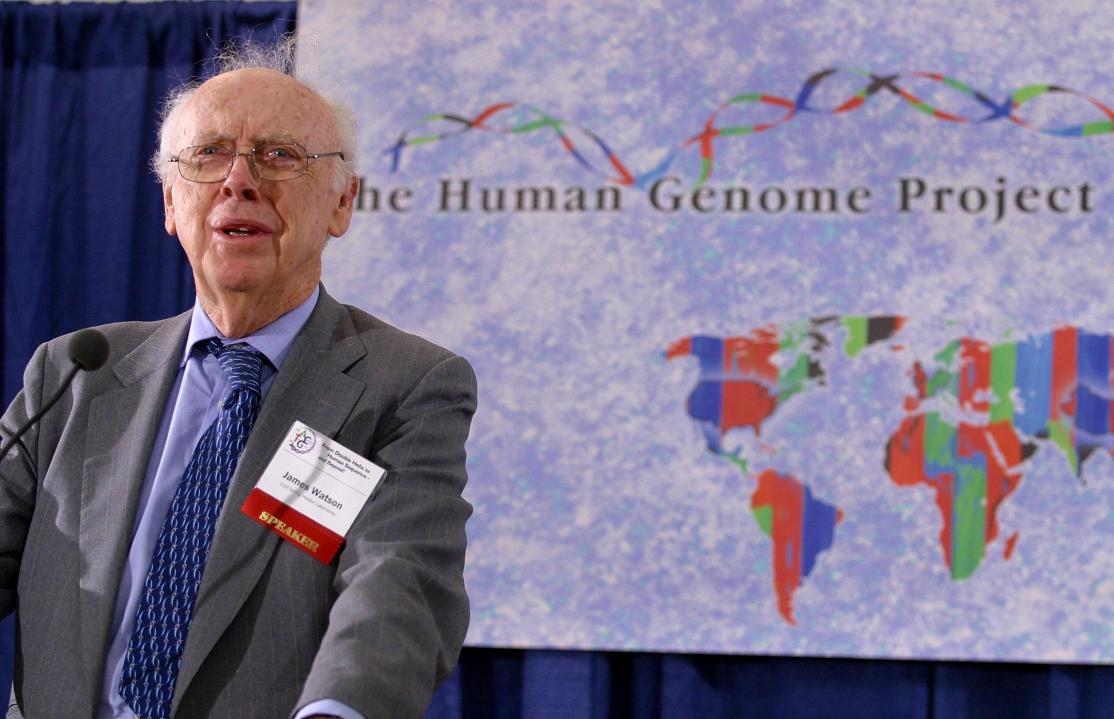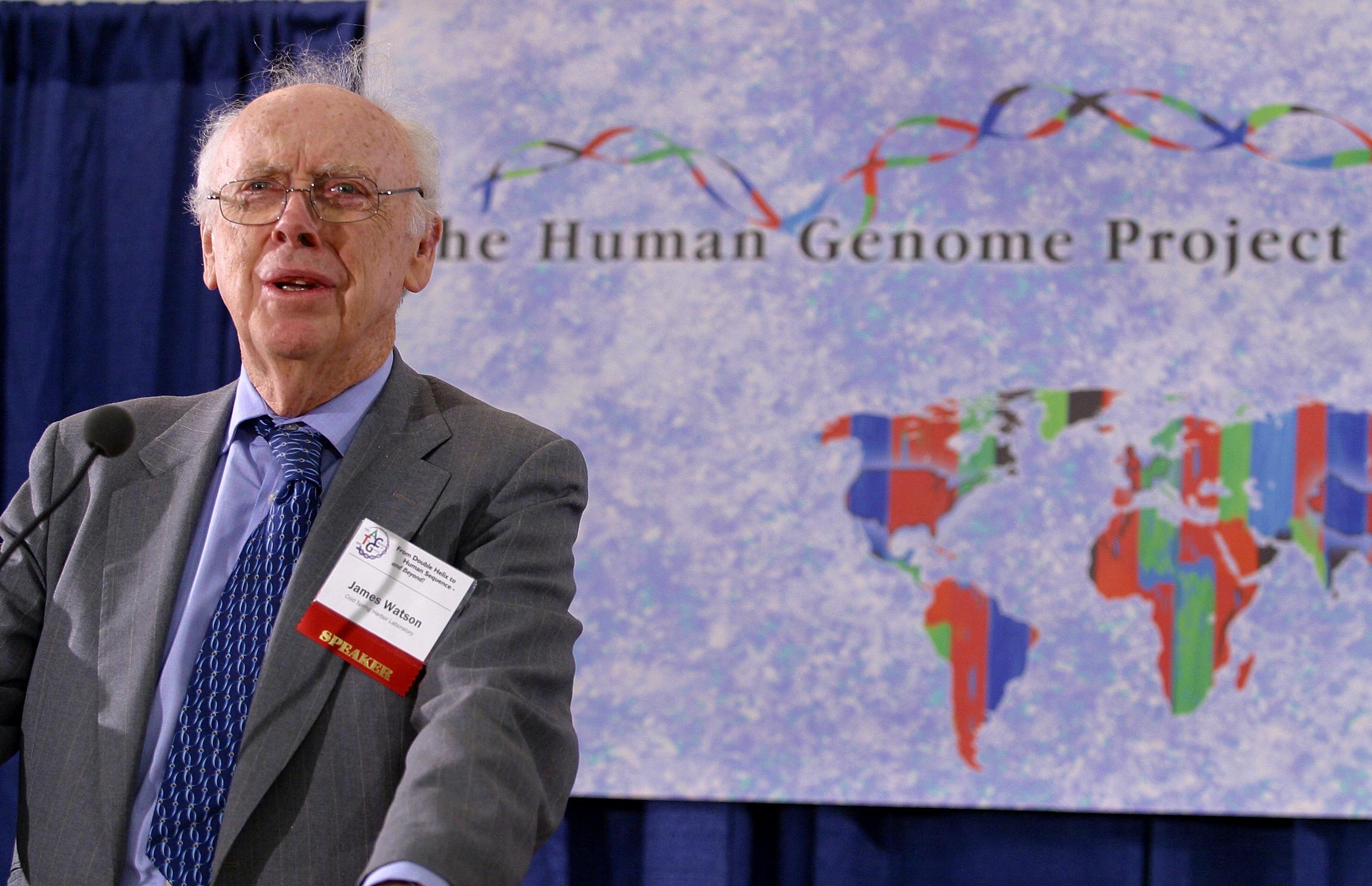James Watson has died at the great age of 97. Obituaries of the American scientist, who, with his late British collaborator Francis Crick, first proposed the double helix structure of the DNA molecule, after paying due tribute to his earth-shattering discovery, inevitably included the information that his later years were clouded by his ‘controversial’ views on race and intelligence.
The Nobel Prize-winning biologist was in fact one of the earliest victims of cancel culture in 2007, when, in an interview with the Times, he stated that he was ‘pessimistic’ about the future of sub-Saharan Africa because its inhabitants were genetically less intelligent than white Europeans.
Immediately, Watson was condemned to the outer darkness as an unreconstructed racist guilty of the greatest sin known to modern minds. Institutions such as Harvard University and his own Cold Spring Harbor Laboratory – where he had used his findings about DNA to further the fight against cancer – immediately cut all ties with the great man and condemned his views as unscientific and unworthy of his world-changing genetic discoveries.
But Watson stuck to his unpopular guns and even expanded on his original statement to suggest that employers of black staff soon discovered disparities in intelligence between them and their Caucasian colleagues. For good measure, he also claimed that there were fewer women than men in the top echelons of scientific achievement because the female mind was less suited to advanced scientific thought than the male – thus adding blatant sexism to racism on his charge sheet.
It was in 1953 that young Watson and Crick strolled into the Eagle pub in Cambridge to announce to startled drinkers that they had ‘solved the secret of life’. The boozers may have been baffled, but the two biologists’ boast was nothing less than the truth. Working together at the famous Cavendish Laboratory in the university city, the pair identified the double helix as the building block running through all our genes, and thus opened the door to the greatest leap forward in scientific progress since Darwin’s ideas on the evolution of species and Einstein’s general theory of relativity.
For the rest of his career, Watson continued to work in genetics and was instrumental in setting up the Human Genome Project, which in 2003 completed its mission of mapping the entire human gene sequence with unimaginable consequences for the future of the human race.
But were Watson’s later opinions on the links between race and intelligence as soundly based as his earlier genetic discoveries had been, or were they, as his critics suggested, the result of the senile decay of a once-great scientific mind? For non-scientists, the answers are mixed. Few can reasonably deny that sub-Saharan Africa is less developed and more prone to crime, violence, corruption and disorder than much of the rest of the world, but whether that is down to intellectual differences between its inhabitants and other races, or the result of such factors as climate and colonialism, is still a matter of heated debate.
Watson argued that it was truly unscientific to claim that intelligence was transmitted equally through the genes of all races, and said that those who denied inequalities in intelligence were influenced by their own political prejudices rather than by objective scientific facts.
The minority of fellow scientists who dared to defend him also risked having their research defunded and their careers abruptly terminated. But writing on the ScienceDirect website in 2008, biologist Jason Malloy said that Watson had voiced ‘an inconvenient truth’ and that there was plenty of scientific data to support his claims.
Like J.K. Rowling in the field of transsexuality, Watson’s eminence as a biologist and his advanced years probably made him immune to suffering materially for his views, but he was nevertheless sanctioned by most of his peers, and his explosive heresy against contemporary orthodoxy will long overshadow his claim to be considered in the company of the great scientists alongside Newton, Darwin and Einstein.








Comments